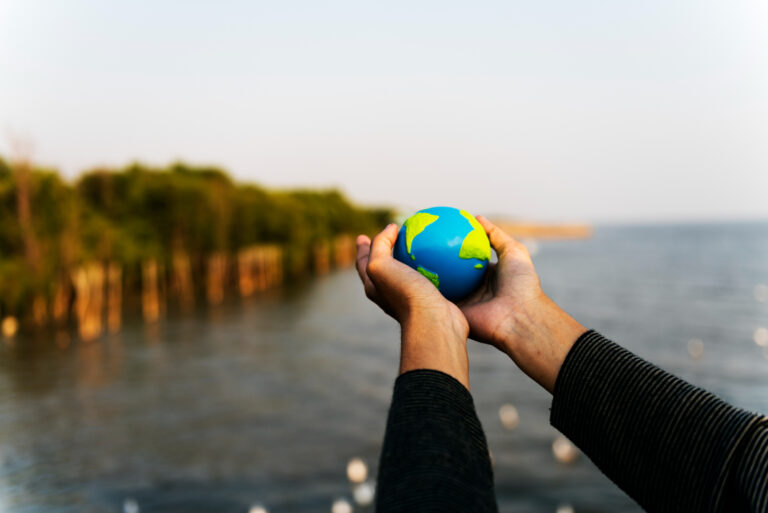The natural resource of clean water is crucial to maintaining life on our planet. Millions of people throughout the world still have to deal with the painful reality of not having access to clean drinking water. It is our responsibility as global citizens to cooperate in ensuring that everyone has access to clean water, which the United Nations regards as a fundamental human right. The significance of clean water, the obstacles we face in getting it, and the programs that promise to provide clean water to everyone will all be covered in this blog.
The Importance of Clean Water
Water is the elixir of life, and access to clean water is vital for survival, health, and well-being. Clean water plays a significant role in preventing waterborne diseases, malnutrition, and dehydration. Moreover, it is essential for personal hygiene, sanitation, and agricultural practices. Communities with access to clean water experience improved living standards, higher economic productivity, and reduced gender disparities as women and girls no longer have to spend hours fetching water from distant sources, freeing up time for education and income-generating activities.
The Global Water Crisis
Despite the advances in science and technology, the global water crisis remains a daunting challenge. According to the World Health Organization (WHO) and UNICEF, over 2 billion people lack access to safe drinking water, and approximately 4.5 billion people do not have adequate sanitation facilities. The consequences of this crisis are devastating, leading to millions of deaths each year, primarily among vulnerable populations such as children and the elderly. Moreover, the scarcity of clean water exacerbates social inequality and hinders progress towards achieving the UN Sustainable Development Goals (SDGs).
Challenges in Achieving Clean Water for All
Several factors contribute to the challenges in providing clean water for all:
- Water Pollution
Pollution from industrial, agricultural, and domestic sources contaminates water bodies, making them unsafe for consumption and use.
- Water Scarcity
Climate change, population growth, and mismanagement of water resources have led to water scarcity in many regions, particularly in arid and semi-arid areas.
- Inadequate Infrastructure
Insufficient infrastructure, especially in rural and marginalized communities, hampers the distribution and purification of water.
- Political and Socioeconomic Factors
Conflicts, corruption, and economic disparities often hinder access to clean water, leaving the most vulnerable populations without a lifeline.
Initiatives and Solutions
Addressing the global water crisis requires a multi-faceted approach involving governments, non-governmental organizations, businesses, and individuals. Some promising initiatives and solutions include:
- Investment in Infrastructure
Governments and organizations must invest in water infrastructure, including pipelines, purification plants, and sanitation facilities, especially in underserved areas.
- Water Conservation
Encouraging water conservation practices in agriculture, industry, and daily life can help in reducing water waste and improving water availability.
- Education and Awareness
Raising awareness about the importance of clean water and promoting hygiene and sanitation practices can empower communities to take ownership of their water resources.
- Innovation and Technology
Embracing innovative water purification techniques and leveraging technology to monitor and manage water resources can lead to significant improvements.
- Public-Private Partnerships
Collaboration between governments, NGOs, and private companies can foster more efficient and sustainable water management solutions.
- Policy and Advocacy
Advocating for water as a human right and influencing policy changes at national and international levels can drive progress toward universal access to clean water.
Expanding Access to Clean Water in Developing Regions
While the global water crisis is a complex challenge, the impact is most acutely felt in developing regions. In many areas of Africa, Asia, and Latin America, communities struggle to find adequate clean water sources, resorting to using contaminated water that poses severe health risks. In these regions, women and children are often burdened with the responsibility of collecting water from distant and unsafe sources, further perpetuating a cycle of poverty and inequality.
To address this critical issue, various organizations and initiatives have emerged to expand access to clean water in developing regions:
- Water Purification Systems
Several non-profit organizations have introduced innovative water purification systems, such as portable filters and solar-powered disinfection devices. These low-cost technologies can be easily deployed in remote areas, providing clean water to those in need.
- Community-Led Projects
Engaging local communities in the planning and implementation of water projects fosters a sense of ownership and sustainability. Empowering locals to manage their water resources also promotes a sense of responsibility and accountability.
- Rainwater Harvesting
Rainwater harvesting systems capture and store rainwater, providing a reliable and sustainable source of clean water, particularly in areas with irregular access to surface water or groundwater.
- Boreholes and Wells
Drilling boreholes and constructing wells can tap into underground water sources, providing a continuous supply of clean water to communities. Regular maintenance of these water sources is crucial to ensure their longevity.
- Sanitation and Hygiene Programs
Access to clean water goes hand in hand with proper sanitation and hygiene practices. Educational programs that teach communities about the importance of handwashing, proper waste disposal, and toilet facilities are vital for overall health improvement.
- WASH Initiatives
Water, Sanitation, and Hygiene (WASH) initiatives, led by organizations like UNICEF and WHO, focus on integrating clean water access with sanitation and hygiene interventions, creating more comprehensive and sustainable solutions.
- Corporate Social Responsibility
Many private companies recognize their responsibility to contribute to the well-being of communities where they operate. Corporate social responsibility programs have supported the construction of water facilities and infrastructure in underserved regions.
The Role of Individuals
While government policies and large-scale initiatives are crucial, individual actions also play a significant role in conserving and protecting water resources:
- Water Conservation
Practicing water-saving habits, such as fixing leaks, using water-efficient appliances, and minimizing water waste, can collectively make a substantial impact on water availability.
- Support for NGOs
Donating to and volunteering with reputable organizations that focus on providing clean water access can directly contribute to life-changing projects.
- Raising Awareness
Spreading awareness about the global water crisis through social media, discussions, and community events can inspire others to join the cause and advocate for change.
- Mindful Consumption
Considering the water footprint of products and supporting businesses committed to sustainable water practices can drive demand for responsible water usage.
Sustainable Water Management
In addition to expanding access to clean water, sustainable water management practices are crucial for maintaining the long-term availability and quality of water resources. The growing global population and increasing demands from various sectors, such as agriculture, industry, and energy production, have put immense pressure on water sources. To ensure clean water for all, it is essential to adopt sustainable approaches to water management:
-
Integrated Water Resource Management (IWRM)
IWRM is a holistic approach that takes into account the interconnectedness of water resources, ecosystems, and human needs. It aims to balance water use among various sectors while preserving the ecological health of rivers, lakes, and aquifers.
- Water Recycling and Reuse
Treating and reusing wastewater for non-potable purposes, such as irrigation, industrial processes, and toilet flushing, can significantly reduce freshwater consumption and pollution.
- Nature-Based Solutions
Implementing nature-based solutions, such as restoring wetlands, protecting watersheds, and promoting afforestation, can enhance water quality, recharge groundwater, and mitigate the impacts of floods and droughts.
- Water-Energy Nexus
Recognizing the interdependence of water and energy, optimizing energy production methods that consume less water and promoting renewable energy sources can help conserve water resources.
- Climate Resilience
Building climate resilience into water management strategies is crucial to address the challenges posed by climate change, such as more frequent and severe droughts, storms, and rising sea levels.
- Smart Irrigation
Adopting smart irrigation techniques, like drip irrigation and soil moisture sensors, can optimize water use in agriculture, reducing wastage and increasing crop yields.
- Water Pricing and Governance
Implementing fair and transparent water pricing mechanisms and establishing effective water governance structures can incentivize responsible water use and foster cooperation among different stakeholders.
International Cooperation
The global nature of the water crisis demands international cooperation and collective action. Developing countries, especially those facing severe water challenges, often require support from developed nations and international organizations to build sustainable water infrastructure and capacity. International collaborations can take various forms:
- Funding and Investments
Developed countries and international financial institutions can provide funding and investments for water projects in developing regions, focusing on clean water access, sanitation, and hygiene initiatives.
- Technology Transfer
Sharing water management technologies and best practices can assist developing nations in adopting sustainable solutions tailored to their specific contexts.
- Knowledge Sharing
Establishing platforms for knowledge exchange and collaboration among countries and organizations can accelerate progress in addressing water challenges worldwide.
- Policy Coordination
Encouraging policy coordination and alignment among nations can lead to more efficient and effective water management, particularly in transboundary river basins.
- Water Diplomacy
Diplomatic efforts can promote dialogue and cooperation among countries sharing water resources, helping to prevent conflicts and ensure equitable water distribution.
Clean water for all is not an unattainable dream but an achievable reality if we collectively prioritize sustainable water management, invest in infrastructure, and promote responsible water use. It requires a profound shift in mindset, policy, and practice, where we acknowledge water as a precious and finite resource that sustains all life on Earth.
As individuals, communities, governments, and global entities, we must unite to address the global water crisis comprehensively. By empowering communities, supporting innovative solutions, raising awareness, and advocating for sound policies, we can make meaningful progress toward providing clean water for every person, irrespective of their background or location.
Together, let us recognize the intrinsic value of clean water and its critical role in building a healthy, equitable, and sustainable world for current and future generations. Clean water for all is not just a moral imperative, but a testament to our commitment to safeguarding the fundamental human right to life, health, and dignity.








